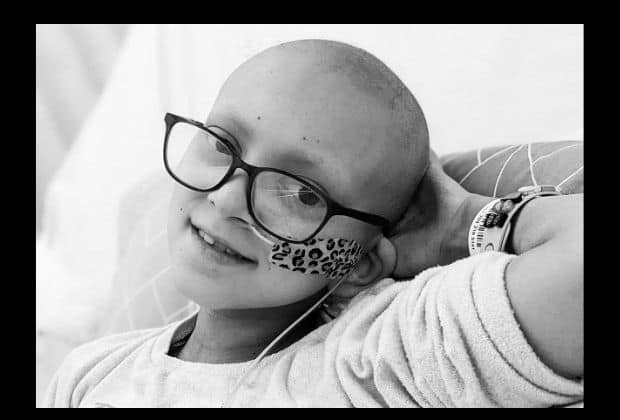
September is Childhood Cancer Awareness Month. Young Lives vs Cancer is a charity that helps children and young people (0-25) and their families find the strength to face whatever cancer throws at them.
The charity’s social workers offer specialist, empowering support, their Home from Homes offer families a free place to stay nearby to the child’s hospital and grants help families to navigate the costs of cancer.
One family who received help from Young Lives vs Cancer was that of St Crispin’s pupil Aurora Pile-Gray.
The nine-year-old, her mum Keisha and partner Ethan and two younger siblings, from Garlinge, won the hearts of the Thanet community as the youngster fought a rare and aggressive cancer and Keisha bravely raised awareness of the condition and the desperate need for bone marrow donors.
Sadly Aurora sadly passed away at home with her family around her in June 2021 at just nine years old.
Aurora’s family are now sharing their story this Childhood Cancer Awareness Month to raise awareness of the experiences of children facing cancer, and their families.
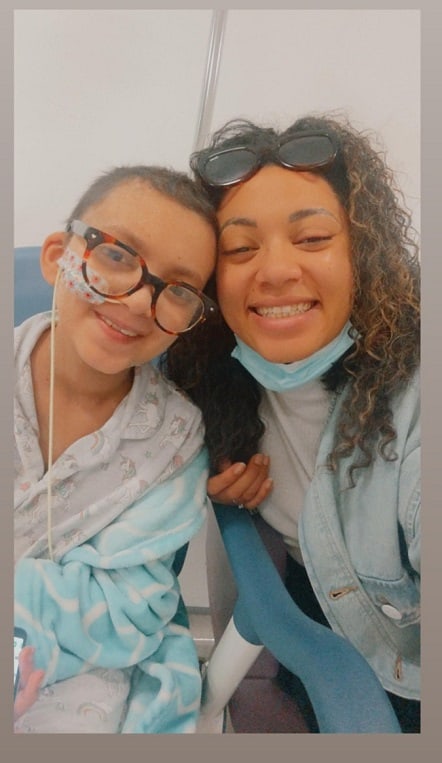
Keisha Pile-Gray recalls the tough conversation of having to explain to her then-eight-year-old daughter Aurora that she had cancer. “She started crying, asking whether she was going to die.”
Aurora was diagnosed with Burkitt’s lymphoma in May 2020 and sadly passed away at home with her family around her in June 2021, just days away from her 10th birthday.
Aurora was diagnosed with Burkitt’s Lymphoma on 5 May 2020, after her Mum, Keisha had taken her back and forth to the doctors and A&E several times in the space of a few weeks. Aurora had started to feel a pain in her chin and then a few days later a lump appeared on her neck. She was put on antibiotics but the lump increased in size and another appeared so they went to A&E where they prescribed Aurora with a new course of antibiotics.
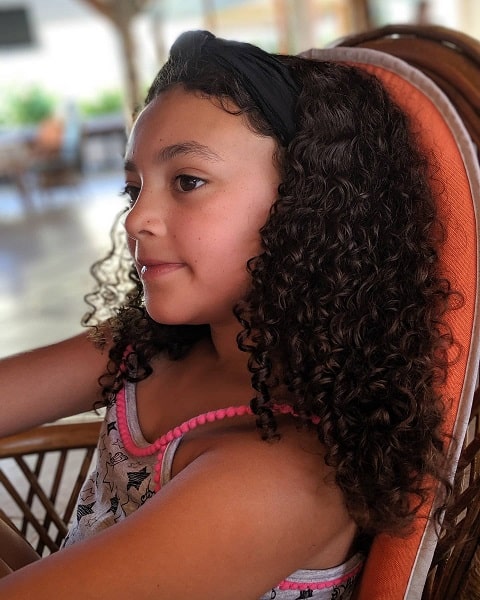
Keisha said: “We were told to take this new course for ten days and just finish the course. This was on the 28th of April, but by the 30th of April, she started leaking something out of her nose, which we syringed. Because she couldn’t sleep we said, go back to sleep, we’ll see how you are tomorrow and we’ll go back to the hospital if you’re not any better. It looked like a blood clot.
“The next day, I took her back to the hospital, and we were waiting for seven hours. They took some more bloods, and tried to send us home again and said it was an infection. We argued for her to stay although the doctor was not too happy. He asked ‘what do you suggest?’ and I said ‘I’m not a doctor but she’s been on ten days of antibiotics now and she should be getting better but she’s getting progressively worse’”
After a few tests, the doctors said she would need to be transferred to London to be seen by a range of specialists.
“I went home to pack my bags and say goodbye to the kids – at the time my son was five months old and my little girl had just turned two. I went back to the hospital and four hours later they pulled me into a room and said she’s got lymphoma or leukaemia.”
Later, once they had been transferred to London, it was confirmed that Aurora had Burkitt’s Lymphoma.
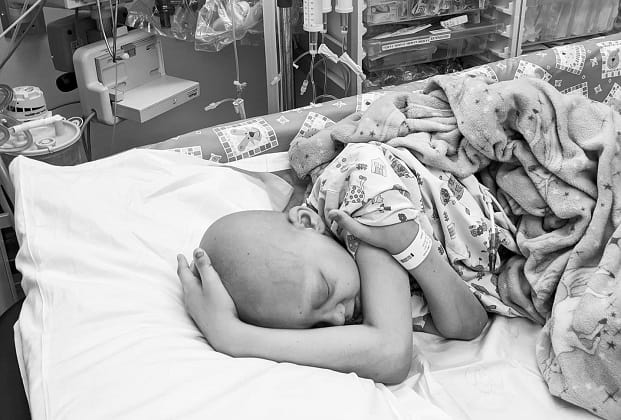
Keisha recalls that moment receiving the news: “I thought she was going to die. Because she was so poorly and because we’d waited so long and it had been building up and building up. When the lump first came up, we took her to the doctors and then we went out for a walk in the park, she was walking around the park, laughing and skipping, by day ten she was on 3litres of fluid a day because her kidneys were shutting down, it happened so quickly. I said ‘does this mean that she’s going to die?’”
She went on to have four cycles of chemotherapy treatment at Royal Marsden hospital. Aurora was declared as being in remission but sadly, just two weeks later, they received a call to say she had relapsed, the cancer had returned. Aurora was then put on another form of treatment called RICE chemotherapy.
“It looked as though it was working to begin with in her first cycle – we went in October, she had her first cycle beginning of November and her second cycle the beginning of December but then just before Christmas, she started swelling.”
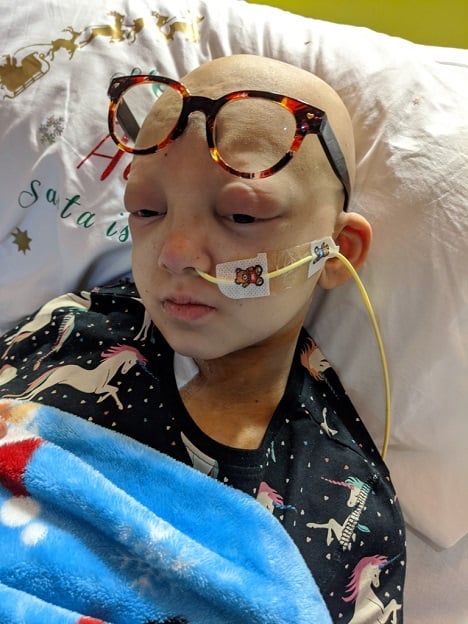
On the 23 December, an MRI test showed she was preliminary clear but then a later PET scan on the 31st showed cancer ‘everywhere north of her pelvis’. On the 4 January, Aurora’s family and the doctors discussed her options and they were advised to take her home. Aurora’s family asked for another opinion and for drug trials, and it was agreed that she would go on a new treatment. On 29 April, they found out she was in remission once again so could have a stem cell transplant.
“A year to the day she was diagnosed we went back into the Marsden to go through the conditioning treatment to prepare for transplant. She had radiotherapy and chemotherapy alongside one another, then had her transplant on May 13th. Initially she did amazing, but then after five weeks, she relapsed again.”
On the 15 June, they were told that she had relapsed extensively and there was no further treatment available. Aurora’s family were given the option to take her home or stay in hospital. Aurora returned home on the 21 June and passed away just a week later on the 29 June 2021.
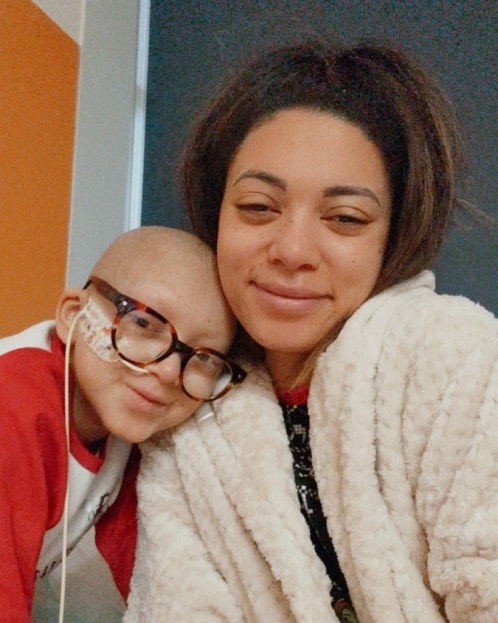
Looking back, Keisha recalls one of the hardest conversations she had to have with Aurora was when she overheard her say to someone on the phone that she had cancer. “We didn’t ever say that she had cancer to begin with, we said she had really poorly blood, and she needed medicine to get better. She said ‘will I get to ring the bell?’ and I said ‘yeah, when you’re all better you can ring the bell’.
“My doctor had called me, about something completely unrelated, and I was in the room with her, I said ‘Look at the moment I don’t really care, my daughter has been diagnosed with cancer’ and Aurora overheard. I’d already assumed she had made the connection when she said about ringing the bell. She started crying, asking whether she was going to die.”
The family were supported during Aurora’s cancer treatment and since she sadly died by Young Lives vs Cancer, the UK’s leading charity for children and young people with cancer. They had a Young Lives vs Cancer social worker who would help them face the emotional, practical and financial impact a childhood cancer diagnosis brings.
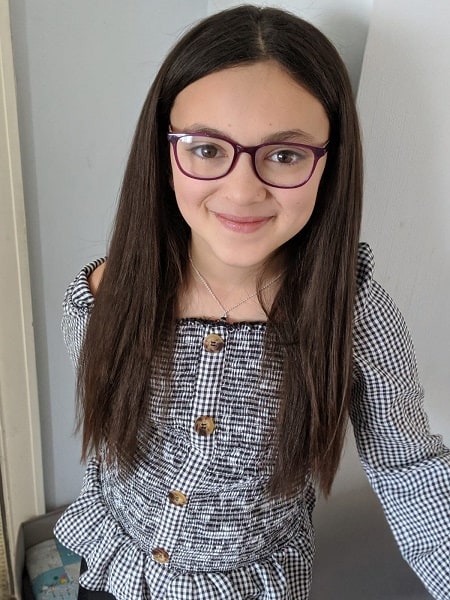
Keisha said: “She used to ring me every other week. She helped me with all the DLA forms, not just for Aurora but for Ada and Oscar as well – I was absolutely drowning in everything, so she helped me sort all that out. Even now she still rings me every month to check in.
“She’d always come and visit Aurora and tell her jokes. It’s just nice to have someone let me vent to her, sometimes that’s all you need. They do go through everything you need to know, not so much about the medical side but life outside of that and the help that they can offer.”
Young Lives vs Cancer
Rachel Kirby-Rider, Young Lives vs Cancer’s Chief Executive, said: “It’s hard to even imagine the conversations that children with cancer and their families like Aurora’s are having day in day out. Our social workers help them face those conversations.
“They tailor their support for each family, they can provide a safe space if a parent needs to talk about their worst fears, give a parent a children’s story book to explain treatment to a young child or their sibling, or have a difficult conversation on behalf of a family. Childhood Cancer Awareness Month is an opportunity for all of us to listen to the experiences of children with cancer and their families, and show our support.
“I also want to say a huge thank you to our amazing supporters fundraising and volunteering for us throughout Childhood Cancer Awareness Month. Their incredible effects mean we’re able to be there for families like Aurora’s.”
Show your support
Throughout Childhood Cancer Awareness Month, people can show their support for families facing cancer by buying a Young Lives vs Cancer gold ribbon pin badge. The badges are available at Young Lives vs Cancer charity shops and J D Wetherspoon pubs, or order one online at younglivesvscancer.org.uk for a suggested £1 donation.
Supporters can also take part in Challenge60 – and fundraise by completing 60 miles throughout the month anyway they like. From walking, running, cycling or even hopping, supporters will take on the distance of the average 60-mile round trip it takes for a child to travel to hospital for life-saving cancer treatment.
You can find more information about Childhood Cancer Awareness Month or make a donation at www.younglivesvscancer.org.uk
Cancer in children and young people
Today, 12 more children and young people in the UK will hear the devastating news that they have cancer. Treatment normally starts immediately, is often given many miles from home and can last for up to three years.
Although survival rates are over 80%, cancer remains the single largest cause of death from disease in children and young people in the UK.

